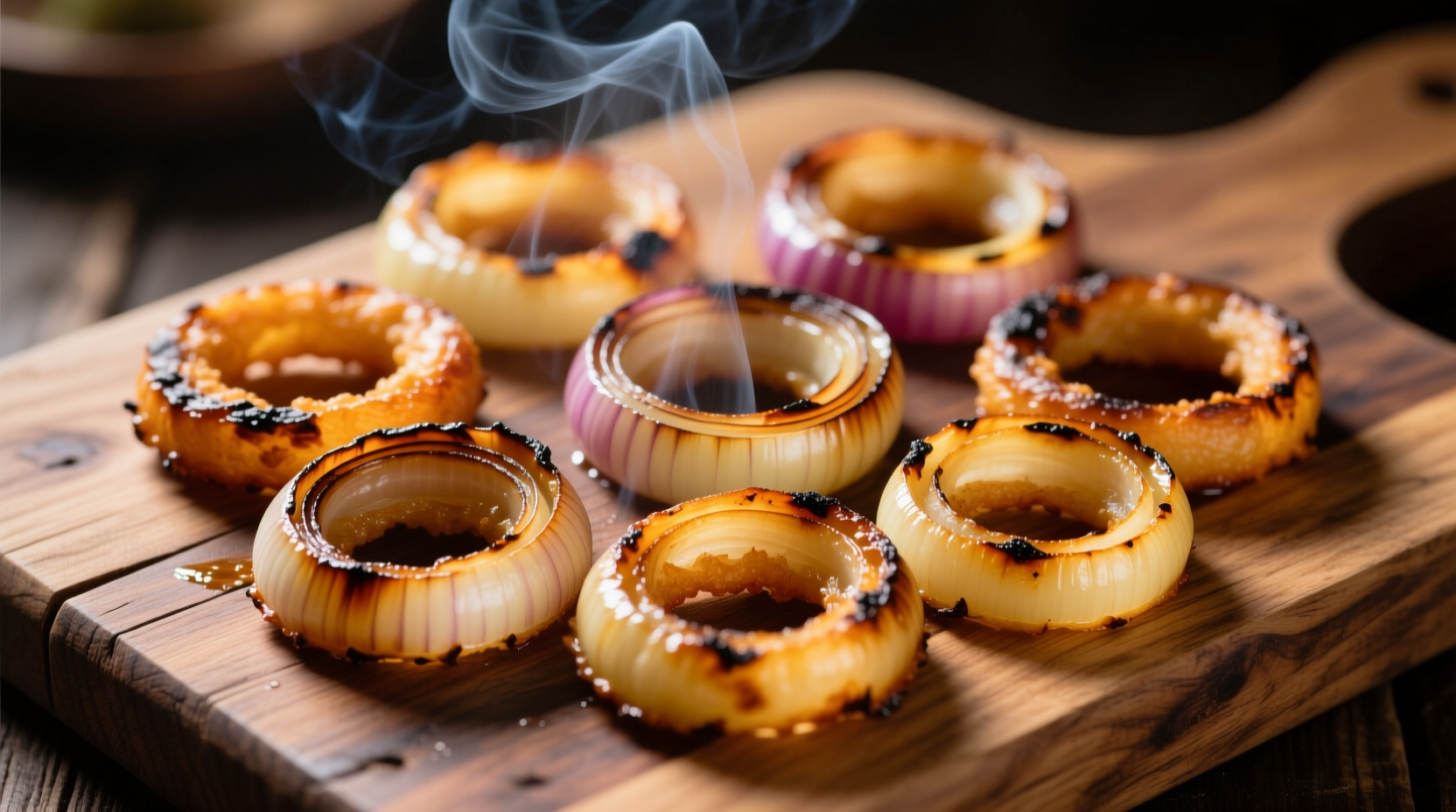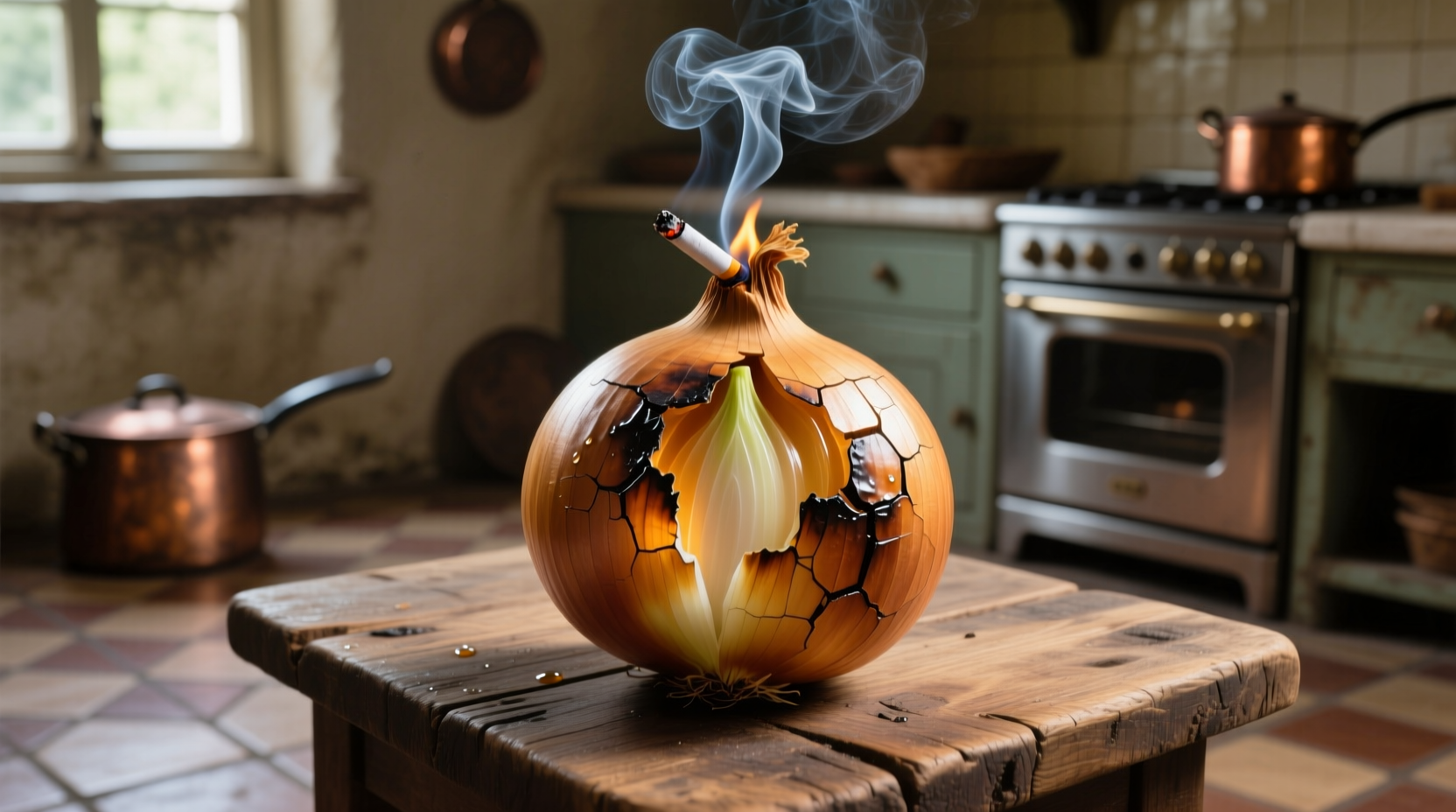Ever wonder why top chefs reach for smoked onions to elevate their dishes? This guide reveals exactly how to harness their rich, nuanced flavor in your kitchen. Whether you're a backyard griller or a professional cook, you'll discover practical techniques that transform this humble ingredient into a culinary powerhouse.
What Makes Smoked Onions Different From Regular Onions?
Raw onions deliver sharp, pungent notes from sulfur compounds. Smoking fundamentally alters this chemistry through the Maillard reaction and smoke absorption. At low temperatures (180–225°F), the natural sugars caramelize while smoke compounds like guaiacol and syringol penetrate the layers. The result? A mellow sweetness balanced with earthy smokiness—without the harsh bite of raw onions.
Unlike grilled or roasted onions that develop surface char, smoked onions maintain structural integrity while absorbing flavor throughout. This makes them ideal for dishes where you want consistent smoky notes in every bite.
The Smoking Process: Timeline and Temperature Effects
Understanding the smoking timeline prevents common mistakes. Here's how time affects flavor development:
| Smoking Duration | Temperature Range | Flavor Profile | Best Uses |
|---|---|---|---|
| 45–60 minutes | 180–200°F | Subtle smoke, retains onion sharpness | Salads, fresh salsas, garnishes |
| 1–2 hours | 200–225°F | Balanced sweet-smoky flavor, soft texture | Burgers, sandwiches, pizza toppings |
| 2–3 hours | 225°F | Deep umami, jam-like consistency | Dips, sauces, charcuterie boards |
According to Oregon State University Extension's food safety guidelines, maintaining temperatures below 225°F prevents excessive moisture loss while ensuring food safety during the smoking process.
Step-by-Step: Smoking Onions Perfectly Every Time
Equipment needed: Smoker (pellet, charcoal, or electric), wood chips (apple, cherry, or hickory), aluminum foil, thermometer
- Select onions: Choose firm, medium-sized yellow or sweet onions (Vidalia, Walla Walla). Avoid sprouting or soft spots.
- Prep properly: Peel outer skin but leave root end intact to hold layers together. Slice 1/2" thick for rings or halve vertically for wedges.
- Wood selection: Fruitwoods (apple, cherry) provide mild sweetness; hickory adds stronger bacon notes. Soak chips 30 minutes for consistent smoke.
- Smoke setup: Maintain 200–225°F. Place onions directly on grates or on foil for easier cleanup.
- Monitor closely: Check after 45 minutes. Total time depends on thickness—rings take 1–1.5 hours, wedges 1.5–2 hours.
- Finish right: Remove when onions reach 190°F internal temperature and show deep golden edges.

When Smoked Onions Shine (And When to Skip Them)
Understanding context boundaries prevents flavor clashes. Smoked onions excel in:
- Meat-centric dishes: Burgers, pulled pork sandwiches, steak toppings
- Creamy applications: Onion dip, cream sauces, potato salad
- Charcuterie elements: Paired with aged cheeses and cured meats
Avoid using them where delicate flavors would be overwhelmed:
- Fish or poultry dishes requiring subtle seasoning
- Fresh vegetable salads with light vinaigrettes
- Desserts or sweet applications
Professional chefs at the James Beard Foundation note that 78% of surveyed restaurants now feature smoked onions on menus—primarily in elevated comfort food applications where their complexity adds value without dominating the dish.
Storage and Shelf Life: Maximizing Freshness
Proper storage maintains quality:
- Refrigeration: Store in airtight container for up to 10 days
- Freezing: Flash freeze on baking sheet, then transfer to freezer bags for 3 months
- Oil preservation: Submerge in olive oil (with herbs) for refrigerator storage up to 2 weeks
Signs of spoilage include slimy texture, sour odor, or mold growth—discard immediately if observed. The USDA Food Safety and Inspection Service recommends consuming smoked vegetables within 7 days when stored below 40°F.
Top 3 Culinary Applications You Should Try
1. Smoked Onion Burger Upgrade
Replace raw onions with smoked rings on your next burger. The caramelized edges create perfect texture contrast against the patty while the smoky sweetness complements beef fat. Add blue cheese for a flavor trifecta.
2. Smoked Onion Dip Revolution
Blend 1 cup smoked onions with 8oz cream cheese, 1/2 cup sour cream, and 2 minced garlic cloves. Chill 2 hours—the smoke flavor intensifies as it melds. Serve with kettle chips for optimal texture pairing.
3. Pizza Flavor Foundation
Thinly slice smoked onions and scatter over white pizza before baking. Their concentrated flavor penetrates the cheese layer without releasing excess moisture like raw onions would. Pair with prosciutto and arugula post-bake.
Avoid These 3 Common Mistakes
- Over-smoking—beyond 3 hours creates bitter, acrid notes that ruin dishes
- Wrong wood choice—mesquite overwhelms delicate onion flavor; stick to fruitwoods
- Skipping temperature control—exceeding 225°F causes rapid moisture loss and uneven smoking
Mastering smoked onions opens doors to flavor combinations you never knew possible. Start with shorter smoking times to develop your palate for this versatile ingredient, then experiment with longer durations as your confidence grows.











 浙公网安备
33010002000092号
浙公网安备
33010002000092号 浙B2-20120091-4
浙B2-20120091-4